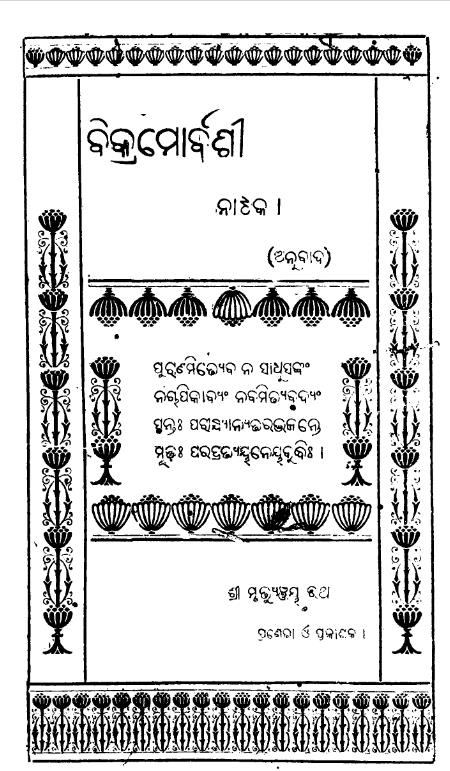Bikramorbashi, an emblematic work of classical Sanskrit literature attributed to the illustrious poet Kalidasa, emerges as a literary gem that continues to enchant readers with its lyrical elegance and profound themes. Translated into English by Mrutyunjaya Rath in 1909, this classic retains its relevance through its exploration of love, sacrifice, and the interplay between human emotions and the divine.
The narrative of Bikramorbashi unfolds against the backdrop of a quintessentially Indian setting, deeply rooted in mythology and folklore. The poem tells the tragic love story of King Vikramaditya and the celestial nymph Urvashi. The king, renowned for his valor and wisdom, becomes enamored with Urvashi, who is both ethereal and unattainable. Their romance, filled with the intensity of desire and longing, ultimately leads to a series of trials that test their love against the realms of duty and fate.
Central to Bikramorbashi is the theme of forbidden love, a motif that resonates across cultures and epochs. Kalidasa intricately weaves the passionate affair between Vikramaditya and Urvashi with the profound struggles of mortality and the ephemeral nature of human joy. As the story unfolds, readers witness not only the brevity of their romance but also the inevitable clash between earthly desires and celestial responsibilities.
Urvashi, as a celestial being, symbolizes unattainability, embodying the tension between the divine and the mortal. This duality compels readers to reflect on their own lives and the often-painful choices they must make in pursuit of happiness. The interplay of love and sacrifice is palpable throughout the narrative, ultimately leading to an exploration of the universal condition of human longing and the acceptance of loss.
Kalidasa’s mastery of language is evident in Bikramorbashi. The translation by Mrutyunjaya Rath captures the essence of the original while making it accessible to a wider audience. The lyrical quality of Kalidasa’s verses resonates deeply, with vivid imagery and rich metaphors bringing the narrative to life. Nature serves as a pivotal backdrop to the story, with descriptions of the changing seasons and the beauty of the landscape symbolically mirroring the characters’ emotional states.
Bikramorbashi, like many of Kalidasa’s works, is steeped in the cultural and philosophical ethos of ancient India. It reflects the societal values of the time, particularly the significance placed on duty (dharma) and the often-painful sacrifices that accompany love. The poem also invokes the rich tradition of Sanskrit literature, demonstrating the aesthetic and intellectual depths of Indian poetic expression.
Rath’s 1909 translation plays a crucial role in preserving this literary heritage, offering contemporary readers a window into the complexities of human emotion as understood in ancient times. By bridging the gap between languages and cultures, Rath’s work ensures that the timeless themes of Bikramorbashi continue to resonate with modern audiences.
Books Info
| Books name | Bikramorbashi / ବିକ୍ରମୋର୍ବଶୀ |
| Author | Kalidasa; Mrutyunjaya Rath, Tr. |
| No Of pages | 80 |
| Publisher | Sri Mrutyunjay Rath |
| Publication | 1909 |
| Printed At | NA |
| Distributor | NA |

